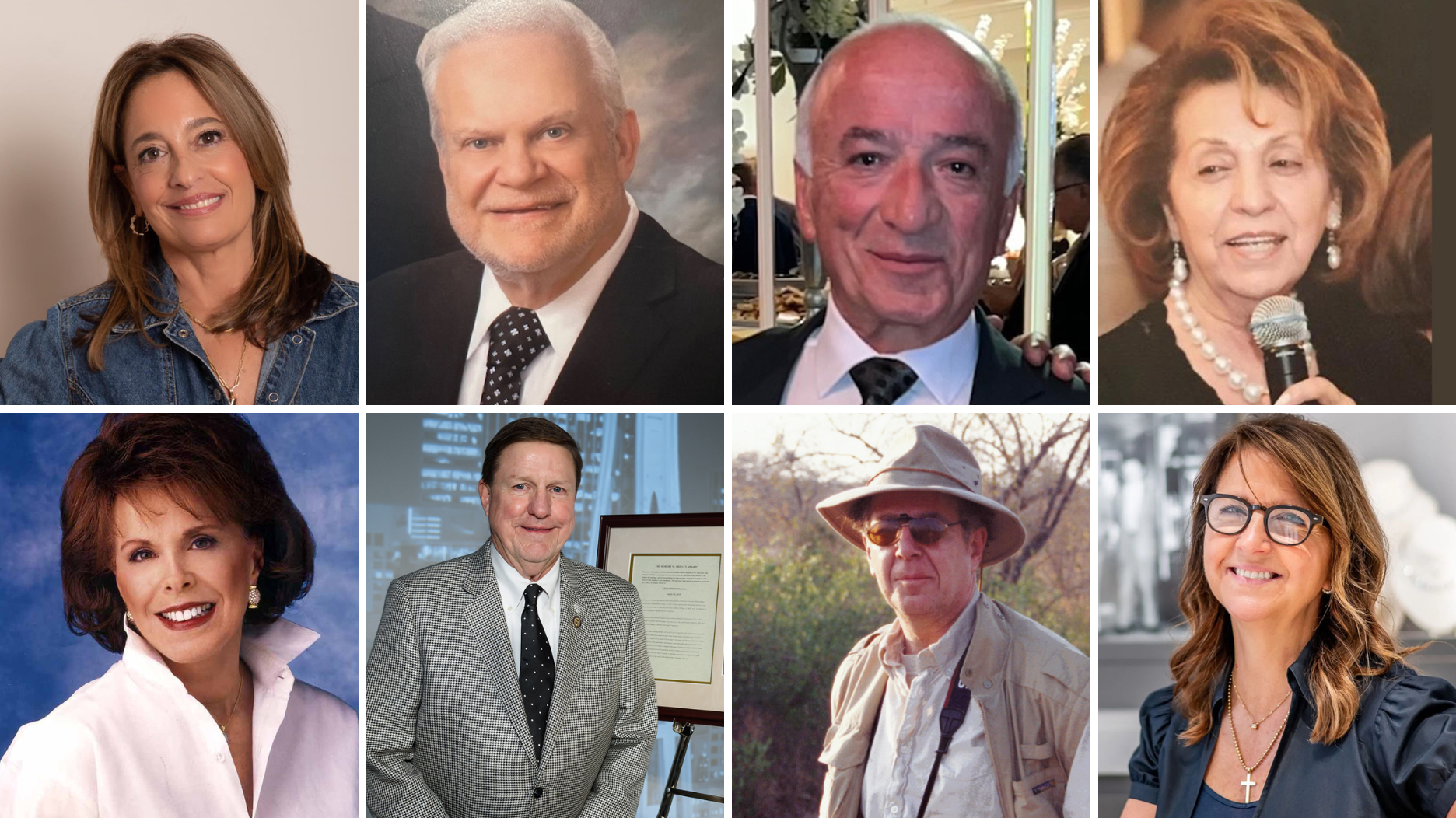Chris Blakeslee has experience at Athleta and Alo Yoga. Kendra Scott will remain on board as executive chair and chief visionary officer.
About Retail: Keeping It All in the Family
R.F. Moeller Jeweler is transitioning to the next generation of leadership. Here’s how the family made the deal come together with minimal angst.

Do I want my business to continue to exist? Or do I want to sell it and not worry about it?
Mark Moeller opted for the former, and now is passing R.F. Moeller Jeweler, which has stores in Minnesota, Saint Paul and Edina, down to his sons, Brian and James, and his brother, Bob.
Here’s how the family made the deal come together while preserving their personal relationships.
From Fun to the Family Business
Mark Moeller, by his own admission, didn’t really have much direction after high school. He was attending college, pursuing a liberal arts degree and, he says, “having fun.”
But Mark’s course changed when his cousin who was working at the family store got drafted for Vietnam and Mark was asked to fill in.
Mark took an interest in jewelry design and gemology, and he never left. “At that time, my fate was fixed,” he says.
Bob, who is younger than his brother by 16 years, followed Mark into the family business about two decades later after the unexpected death of their father on Dec. 23, 1990, at the age of 67.
He was 23 years old at the time. Mark asked him to come into the business and try it for a year and, just like his brother before him, it was a quick, temporary change that became permanent.
“This business gets in our blood, so I stayed,” Bob says. “It’s great.”
Fast-forward a little and you’ll find both Mark and Bob still running the family jewelry store but beginning to formulate a plan for the elder brother’s eventual exit.
Everything Is Not Fine
Mark had been adamant about the importance of having a solid succession plan well before it was his time to think about retiring.
He says that in 1988, he told his parents that they had to put a plan in place for their exit from the business. Their response to this was, “Why?”
“They didn’t want a plan in place. They thought everything was fine,” he says.
Bill Boyajian, a former GIA president who now acts an industry consultant whose specialties include family transition and succession planning, says this kind of reaction is not uncommon among people of that generation, the parents of the baby boomers who are in their 80s and 90s today.

Mark says in his case, he believes it was a control issue, meaning his parents did not want to cede any by elevating him from a salesperson to an officer of the company. The issue got so contentious that he nearly left the family business.
Though his father eventually sat him down and they hammered out an agreement before his untimely passing in 1990, Mark wanted the process surrounding his own exit from the family business to be less fraught.
He knew what else he wanted too: to see the family store stay open; to get enough money out of the business so he and his wife, Carol, could live comfortably without leaving his brother and sons in a precarious financial position; to still be involved in the aspects of the business that he genuinely enjoys; and to have an agreement hammered out that would kick in around the time he turned 65.
But he, too, would have to learn a lesson in letting go for it to happen.
The Plan
The Moeller succession plan started out with a present.
Mark and Carol gifted 49 percent of the business to their sons and Bob, a gift that came with an enormous tax break for them.
After breaking up the business via this gift, the Moellers had their three-store operation evaluated again and reached an agreement that Bob, Brian and James would buy out Mark’s remaining share in the company over a period of 10 years, beginning Dec. 1, 2016.
During that decade, he remains under contract to the store. He can come and go as he pleases--and, these days, his pleasure is to spend the winter months far away from Minnesota--but still handles certain tasks. These include negotiating with the bank and insurance company and being involved in the purchase of larger diamonds and in the store’s antique and estate jewelry business.

Carol, who has been part of the family since 1974 and worked at the store since 1983, still does the company’s human resources but also has more freedom in her role. She does it remotely from Florida in the winter, and while she still comes into work every day when she’s in Minnesota, she’s working shorter hours.
Bob, Brian and James have ownership but they don’t have complete control until the buyout is complete in 2026, with Mark retaining controlling interest in the voting stock of the business until he’s fully paid off. In addition, ownership of the business cannot pass beyond Bob, Brian and James during the next decade.
Reflecting on the process via telephone from his winter home in Florida, Mark says, “I don’t think it was contentious at all,” which is, ostensibly, just what he was looking for after what we went through with his own parents.
Egos Aside
The Moellers, who were interviewed together for this story, and Boyajian all agree on the factors that made the process go smoothly.
The parties involved were able to, number one, put self-interest and ego aside and do what was best for the business overall.
Boyajian says Mark learned to trust him, trust the process and let go. The family patriarch had to get comfortable with the idea that he was no longer the kingpin, and he did.
Brian, who at 39 is the older of Mark’s sons, also mentioned his father’s focus on longevity of the business, not how much money he could get out of it. Bob echoed that idea, noting that Mark and Carol “did not get greedy.”
From Mark’s perspective, “I wanted to make sure the balance sheet wasn’t affected so that their ability to borrow money wasn’t affected by their buying out Carol and me.”
“These decisions, if you take time and think about them, are pretty simple,” he says. “That is the key--not being greedy.”
And both Brian and his younger brother, 36-year-old James, credit their Uncle Bob, 49, with treating them as equals even though he’s been in the business a lot longer than they have.
Bob says he’d rather work with this two nephews--who bring fresh ideas and a younger person’s perspective--than try to do everything himself.
“Marriages just don’t break up. They erode slowly over time … The same thing is true in partnerships, and the same thing is true in family businesses.”--Bill Boyajian
Another factor that helped the Moellers move the business to the next generation was their willingness to ask for help.
Mark says they worked with a few very good consultants along the way--chief among them Boyajian, who was a “tremendous help” and a “team builder.” Bob stressed the importance of having a great accountant involved. In their case, it was their in-house chief financial officer.
For his part, Boyajian says he approaches the family transitions he’s hired to consult on like a counselor. He likes to get to know each member of the family personally and understand what motivates them.
He also encourages the family members to get to know each other better.
With the Moellers, he had Bob start going out to breakfast with Brian and James once a week.
These weekly meetings get them out of the store and give them the chance to talk offline and develop a relationship. Even if one of them is out of town, the other two still get together.
Boyajian says he looks at the relationships within family businesses through the same lens he views marriage, and if there’s one thing he knows after 37 years of marriage, it’s that two people can always get closer.
“Marriages just don’t break up. They erode slowly over time. Then, suddenly, one thing happens and that’s the straw that breaks the camel’s back,” he says. “The same thing is true in partnerships, and the same thing is true in family businesses.”
The Latest

The credit card companies’ surveys examined where consumers shopped, what they bought, and what they valued this holiday season.

Kimberly Miller has been promoted to the role.

How Jewelers of America’s 20 Under 40 are leading to ensure a brighter future for the jewelry industry.
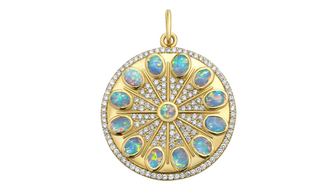
The “Serenity” charm set with 13 opals is a modern amulet offering protection, guidance, and intention, the brand said.


“Bridgerton” actresses Hannah Dodd and Claudia Jessie star in the brand’s “Rules to Love By” campaign.

Founded by jeweler and sculptor Ana Khouri, the brand is “expanding the boundaries of what high jewelry can be.”
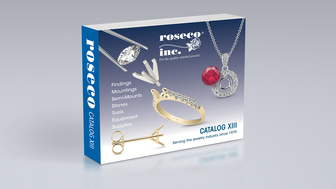
Roseco’s 704-page catalog showcases new lab-grown diamonds, findings, tools & more—available in print or interactive digital editions.

The jewelry manufacturer and supplier is going with a fiery shade it says symbolizes power and transformation.

The singer-songwriter will make her debut as the French luxury brand’s new ambassador in a campaign for its “Coco Crush” jewelry line.

The nonprofit’s new president and CEO, Annie Doresca, also began her role this month.

As the shopping mall model evolves and online retail grows, Smith shares his predictions for the future of physical stores.

The trade show is slated for Jan. 31-Feb. 2 at The Lighthouse in New York City's Chelsea neighborhood.

January’s birthstone comes in a rainbow of colors, from the traditional red to orange, purple, and green.

The annual report highlights how it supported communities in areas where natural diamonds are mined, crafted, and sold.

Footage of a fight breaking out in the NYC Diamond District was viewed millions of times on Instagram and Facebook.

The supplier has a curated list of must-have tools for jewelers doing in-house custom work this year.

The Signet Jewelers-owned store, which turned 100 last year, calls its new concept stores “The Edit.”

Linda Coutu is rejoining the precious metals provider as its director of sales.

The governing board welcomed two new members, Claire Scragg and Susan Eisen.

Sparkle with festive diamond jewelry as we celebrate the beginning of 2026.

In its annual report, Pinterest noted an increase in searches for brooches, heirloom jewelry, and ‘80s luxury.

Executive Chairman Richard Baker will take over the role as rumors swirl that a bankruptcy filing is imminent for the troubled retailer.

Mohr had just retired in June after more than two decades as Couture’s retailer liaison.

Shekhar Shah of Real Gems Inc. will serve as president of the Indian Diamond & Colorstone Association in 2026.
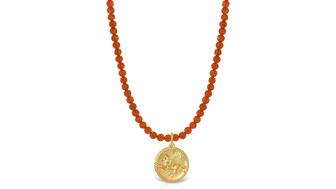
This year’s good luck charm features the mythical horse Pegasus, and is our first Piece of the Week of the new year.
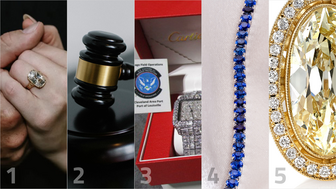
Articles about crime, engagement rings, and a necklace worn in the World Series generated the most interest among readers.













